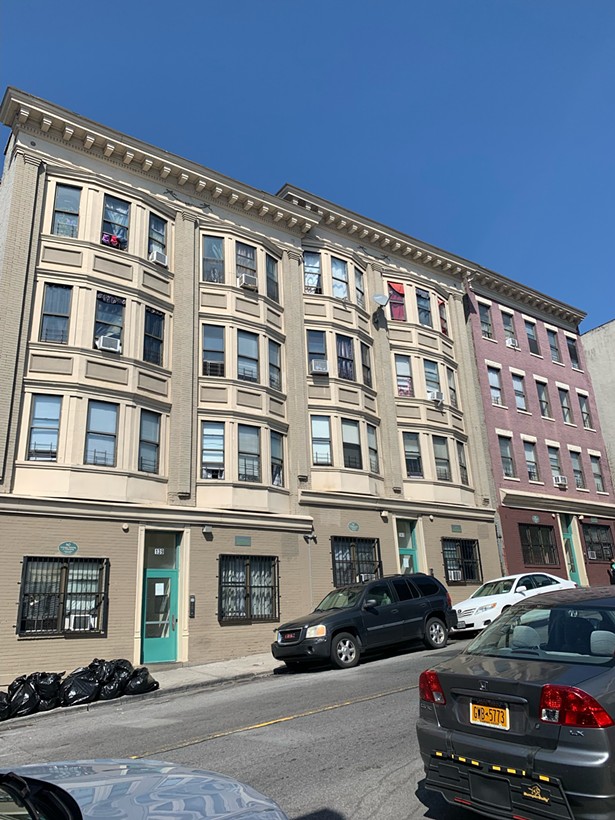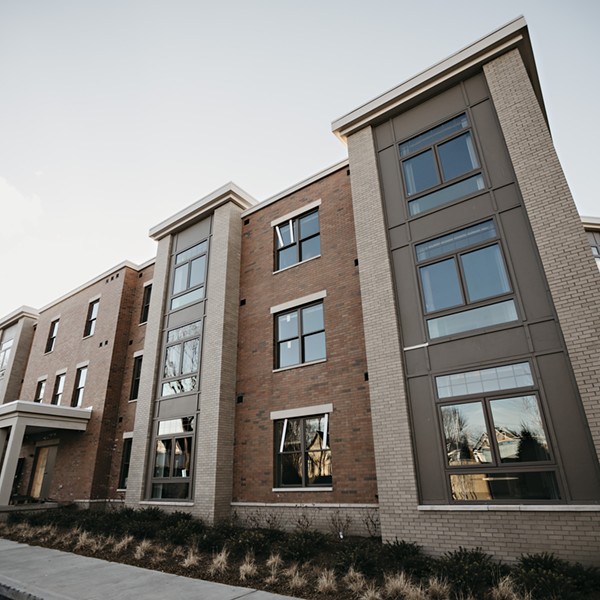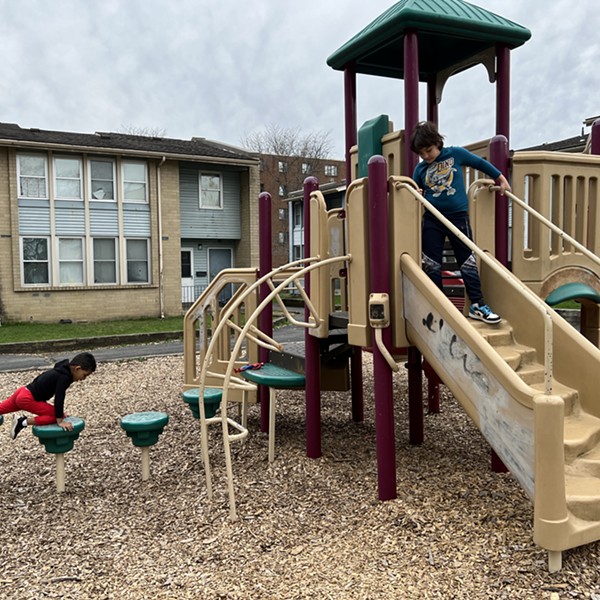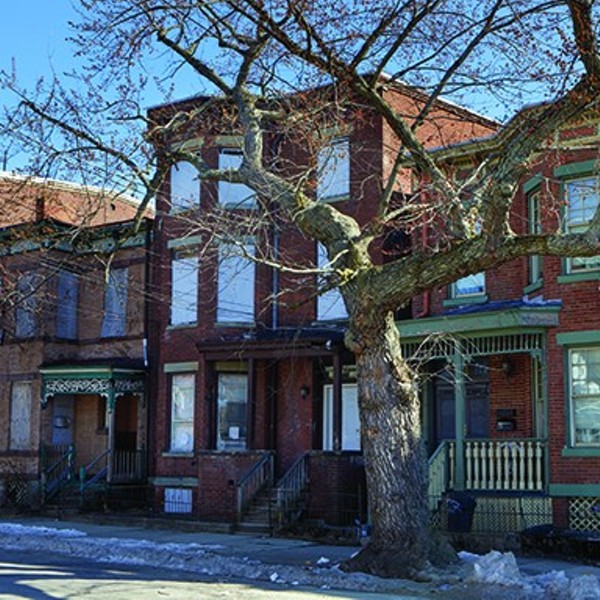New York State faces an ongoing housing crisis; currently, the number of unhoused adults in New York City is 132 percent higher than it was 10 years ago. In the Hudson Valley, the situation has been significantly exacerbated over the past two years by the coronavirus pandemic, which increased financial pressures on lower-income and working-class individuals and families, while also sparking a surge of New York City residents relocating north, leading to the rising costs of single-family homes and spiking rent costs in the area.
To help address the crisis in one corner of the state, US Senator Chuck Schumer (D-New York) and US Congressman Jamaal Bowman (D, NY-16) secured $500,000 for affordable housing improvements in Westchester County, as part of a $1.5 trillion omnibus funding package announced on March 9. The funds will deliver critically needed capital improvements and repairs to sustain 79 affordable housing units in nine multifamily apartment buildings owned and operated by Westhab, an affordable housing developer, in south Yonkers.
“It’s really exciting to build brand-new, modern, sustainable housing, but we also have aging, affordable housing in our community that fulfills a really important purpose: this is 79 people’s homes,” says Westhab CEO Rich Nightingale. “It’s so important that we do this kind of thing to preserve those homes for the long run, or they could quietly be lost if this housing were to fall into disrepair.”
With high-quality affordable housing increasingly scarce, community leaders say it is critical that the county’s existing units are not only preserved, but upgraded to ensure they will meet residents’ needs for years to come, enabling them to continue living in, and contributing to, the communities they have long called home.
“Housing is health care,” says Bowman, who represents New York’s 16th Congressional district, including his hometown of Yonkers. “When you think about the trauma and the stress that people go through when they are living with housing insecurity on a consistent basis—children cannot concentrate in school, parents cannot concentrate at work, the stress impacts their health, it raises their healthcare costs, it disrupts the entire life of so many people.”
The units are a mix of traditional income-restricted affordable housing for tenants making no more than a specified income, as well as units specifically allocated for housing the formerly homeless. Affordable housing operated by Westhab is designed to be affordable for the long run—according to Nightingale, tenants pay no more than 30 percent of their income in rent, the local average for persons living in affordable housing. The 79 units are scheduled to begin renovations this fall.
A City In Need
With a population of about 211,000 people, Yonkers is the third-largest city in New York. But nearly two-thirds of households in Yonkers are unable to afford the high cost of living in their community. In order to afford the average two-bedroom apartment at market level in Westchester, a renter would need to make over $75,000 per year. The average county resident takes home only about $40,000 annually.
“It’s no secret: we all know that Westchester has an affordable housing crisis,” said US Senate Majority Leader Schumer at an April 20 press conference at one of the properties in southwest Yonkers. “Housing is a human right, but for too many families and residents in the country, and particularly here in Westchester, when the cost is so high, there are no options.”
According to a 2019 county housing needs assessment, more than 70 percent of homes in Westchester are at least 50 years old. According to Nightingale, major systems and structural elements are typically in need of full replacement in homes of this age. Additionally, these homes are often very inefficient in terms of energy use, with elements such as heating systems, doors, windows, and insulation that need updating.
The $500,000 Senate grant will be used for repairs to the nine buildings, including exterior work like brick repair, roof, and fire escape upgrades. Additional work includes upgrades to common spaces like lobbies and stairwells, where new tiles and heating control systems are desperately needed. Each of the buildings is currently in operating condition, and families can remain in their homes while construction takes place, Westhab says.
“The thing is, generally, housing is relatively expensive, and upgrading 79 units of housing is no easy feat,” Nightingale says. “So we’re going to try to stretch the money as far as we can, but if these nine buildings each get [the repairs they need], it will really help make sure that they are preserved long into the future.”
Financial Pressures
The affordable housing industry faces a number of challenges, including dwindling federal, state, and local financial incentives, with leaders falling through on promises of affordable housing funding, and extreme market pressures on an ever-growing demand for rental housing.
“The issue that we’re trying to solve here is when you have deeply affordable housing, the rent roll is very low, and these are buildings that have not been able to generate reserves to do upgrades over the years to fix the things that need fixing,” Nightingale says. “That’s the reason we applied for these funds and why these funds are so important.”
In his State of the County address on April 21, Westchester County Executive George Latimer noted recent strides in combating the housing crisis in the county, while also reiterating the ever-present need for more affordable housing. “Our responsibility as a county government is to make sure that the opportunity for affordable housing is always there,” he said.
According to Latimer, the combined total of $50 million allocated in the 2022 Westchester County Capital Budget represents the largest single-year commitment to affordable housing in the county’s history, up from an average of $30 million each of the past three years. Currently, there are about 4,400 affordable housing units in the county.
But demand for affordable housing far outweighs supply in Westchester, the county with the largest population in the Hudson Valley. For every unit of housing Westhab operates, there is a waiting list, and for each unit with a vacancy, as many as 1,000 families will apply, according to Nightingale. “It's kind of heartbreaking,” he says. “Winning an affordable housing lottery, unfortunately, feels too similar to winning the actual lottery.”
Fighting NIMBY-ism
Affordable housing, while not a recent development for south Yonkers, is much less recognized in some of Westchester’s more affluent communities. According to Nightingale, in order to successfully battle the housing crisis, affordable housing needs to be built in a wider array of communities, including in neighborhoods that have historically fought against it.
“Some communities are oversaturated with affordable housing, while other communities, like in northern Westchester, haven’t done their fair share, right? The real solution has to be both,” Nightingale says. “When you build affordable housing in higher-need communities, that affordable housing can be a real anchor for that community and can be a real catalyst. And conversely, when we build housing in a community that doesn’t have a lot of affordable housing, that plays another role in helping families achieve some upward mobility and send their kids to really highly rated school districts, for example.”
For the last 40 years, Westhab has operated over 1,000 units of affordable housing and transitioned nearly 10,000 families from homelessness to affordable housing. Their “SoYo Preservation Project” continuously works to develop permanent, transitional affordable housing in southwest Yonkers, where affordability of housing is deemed a crisis by local leaders and residents.
“This half-million dollars that we got as part of the appropriations process is a great beginning and a great start, but we have a lot more work to do,” says Bowman. “The unhoused epidemic in Yonkers and the housing insecurity in Yonkers and Mount Vernon in parts of New Rochelle in particular is unacceptable…Let’s continue to be diligent and vigilant because there’s so much more work to do.”






















